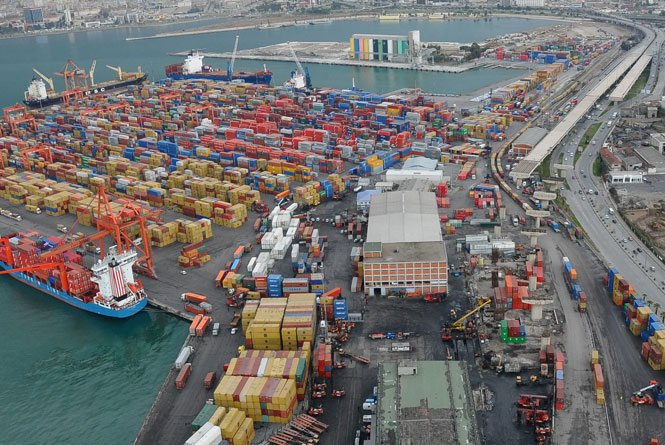In the global landscape of business and investment, Dubai stands out as a beacon of opportunity and innovation. Establishing a Dubai holding company application is a strategic move for entrepreneurs and corporations aiming to leverage the emirate’s robust economic framework, tax advantages, and strategic geographic location. This article delves into the intricacies of the Dubai holding company application, exploring its benefits, legal requirements, setup process, and strategic advantages for global investors.

A holding company in Dubai is an entity designed to own and manage assets, such as shares in subsidiaries, intellectual property, real estate, or other investments, without engaging in day-to-day operational activities. The primary purpose of such a structure is to consolidate control, optimize asset management, and facilitate strategic growth across diverse industries. The Dubai holding company application process is tailored to support this model, offering a regulatory environment that encourages foreign ownership and investment. Dubai’s holding companies can operate in free zones, mainland areas, or offshore jurisdictions, each with distinct advantages. For instance, free zones like the Dubai International Financial Centre (DIFC) provide 100% foreign ownership, while mainland holdings allow direct access to the local market. Understanding these options is the first step in a successful Dubai holding company application, as it aligns the business structure with long-term objectives.
The decision to pursue a Dubai holding company application unlocks a multitude of benefits, making it an attractive option for international investors. Firstly, Dubai offers a tax-efficient environment, with no corporate or personal income taxes for holding companies in most jurisdictions, particularly in free zones. This enhances profitability and simplifies financial planning. Secondly, the emirate’s strategic location serves as a gateway to emerging markets in Asia, Africa, and Europe, facilitating global expansion. Additionally, a Dubai holding company application provides asset protection through robust legal frameworks, shielding holdings from external liabilities. Other advantages include 100% repatriation of profits, minimal currency restrictions, and access to a world-class infrastructure. These benefits collectively contribute to the growing popularity of the Dubai holding company application among multinational corporations and high-net-worth individuals.
Navigating the legal landscape is crucial for a smooth Dubai holding company application. The requirements vary based on the chosen jurisdiction—mainland, free zone, or offshore. For mainland applications, investors must comply with the UAE Commercial Companies Law, which may involve partnering with a local sponsor (though recent reforms allow 100% foreign ownership in many sectors). Free zone applications, such as those in DIFC or Jebel Ali Free Zone (JAFZA), typically require proof of sufficient capital, a detailed business plan, and adherence to specific regulatory guidelines. Offshore options, like those in the Ras Al Khaimah International Corporate Centre (RAKICC), focus on asset holding with minimal compliance. Regardless of the path, a Dubai holding company application mandates proper documentation, including passport copies, bank references, and ownership structure details. Engaging with local legal experts can streamline this process, ensuring compliance and avoiding delays.

The Dubai holding company application process is systematic and efficient, reflecting Dubai’s business-friendly ethos. It begins with preliminary research to determine the optimal jurisdiction and structure. Next, investors must reserve a trade name with the Department of Economic Development (DED) for mainland applications or the respective free zone authority. Subsequently, submitting the application package—including forms, documents, and fees—is essential. For a Dubai holding company application, this often involves outlining the intended activities, such as "holding shares and assets." Once approved, investors proceed to secure a business license and open a corporate bank account. The entire process can take 2–6 weeks, depending on the complexity and jurisdiction. Post-application, companies must adhere to annual compliance, such as renewing licenses and submitting audited financial statements. This streamlined approach makes the Dubai holding company application accessible even for first-time investors.
Beyond the basics, a successful Dubai holding company application requires strategic planning. Investors should assess their long-term goals, such as diversification, inheritance planning, or market entry. For example, holding companies in Dubai can serve as regional headquarters, consolidating operations across the Middle East. Additionally, considering Dubai’s evolving regulations, such as the introduction of economic substance rules, is vital to ensure ongoing compliance. Another key aspect is selecting the right partners—whether legal advisors, auditors, or banking institutions—to support the Dubai holding company application and subsequent operations. By aligning the application with broader business strategies, investors can maximize returns and mitigate risks.
While the Dubai holding company application is generally straightforward, applicants may face challenges like regulatory complexity, documentation errors, or delays in approvals. For instance, navigating the nuances of local sponsorship in mainland applications can be daunting. To overcome this, working with experienced consultants who specialize in the Dubai holding company application process is advisable. They can provide insights into jurisdiction-specific requirements and help draft compliant business plans. Additionally, ensuring all documents are accurately translated and notarized can prevent setbacks. By anticipating these hurdles, investors can ensure a seamless application experience.
In conclusion, the Dubai holding company application is a gateway to unparalleled business opportunities in one of the world’s most dynamic economies. From tax benefits and asset protection to strategic global positioning, the advantages are compelling. By understanding the legal requirements, following a structured process, and incorporating strategic insights, investors can successfully establish a holding company in Dubai. As the emirate continues to evolve as a global hub, the Dubai holding company application remains a cornerstone for sustainable growth and international expansion.










Zhuoxin Consulting relies on its Chinese service network and Dubai executive team to provide professional one-stop business services without communication barriers for Chinese companies to enter the Middle East market. Its business covers company establishment and maintenance, accounting and taxation, bank account opening, PRO services and business services.
Zhuoxin Consulting has high-quality business resources and maintains close cooperation with many free zones, bankers and tax departments in the UAE to escort your expansion in the Middle East market.
 Add WeChat
Add WeChat